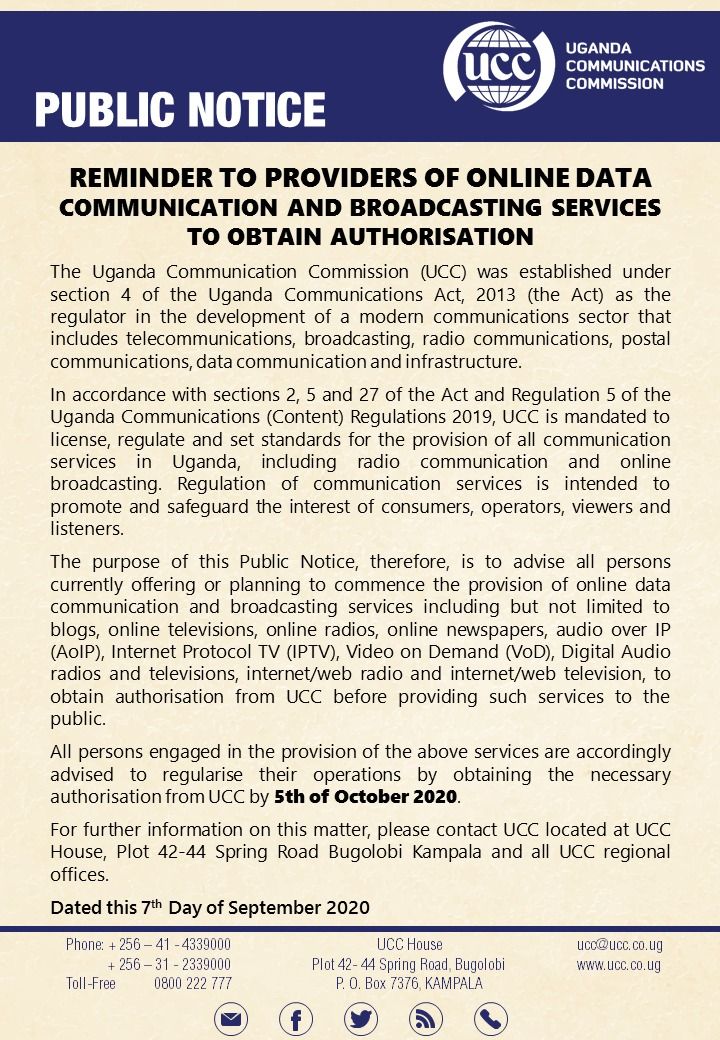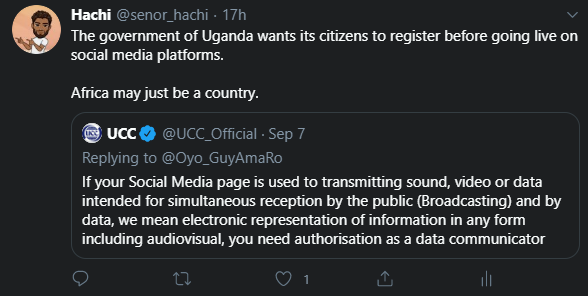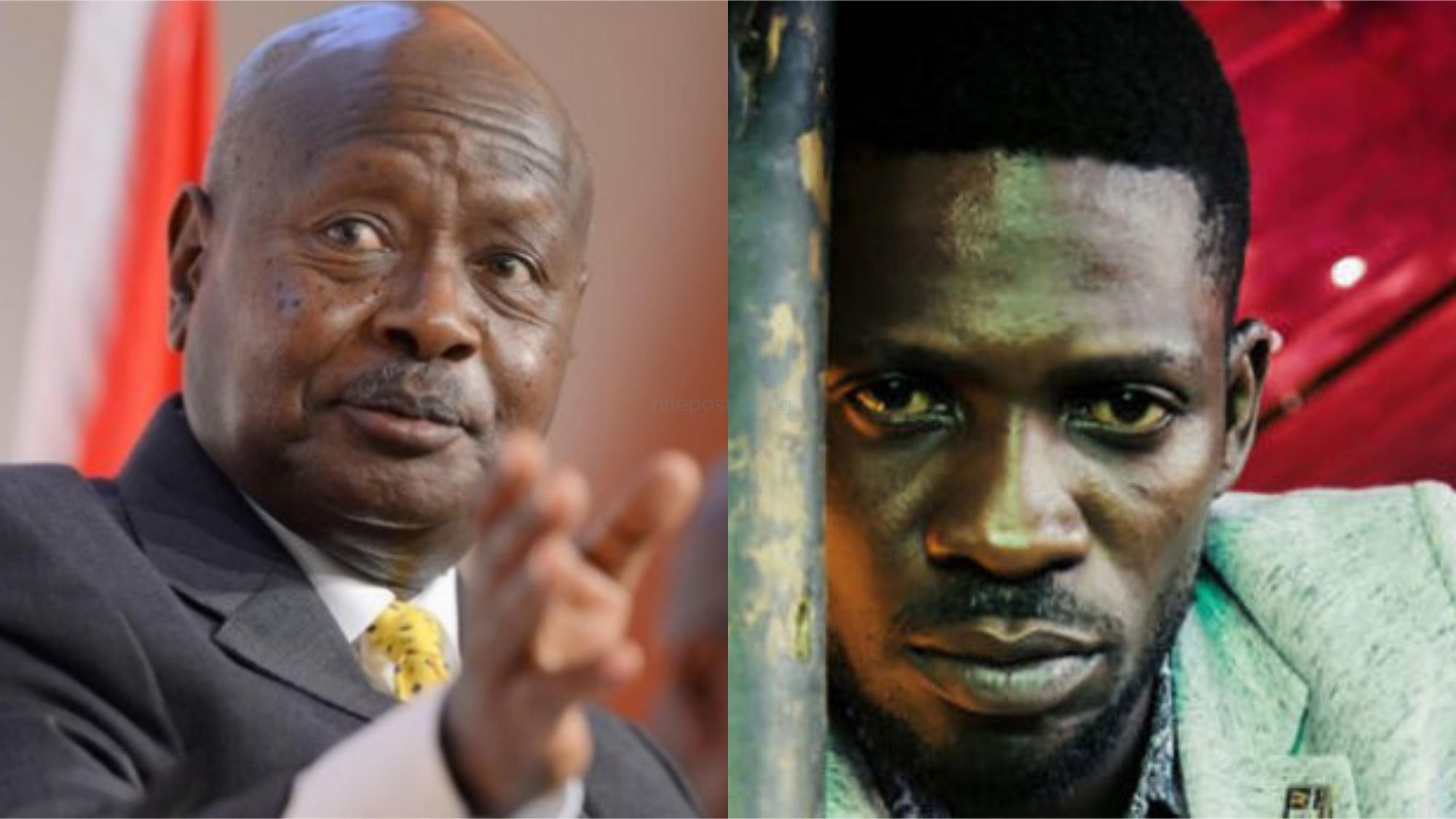Ugandans now need government approval to go live on social media
The Uganda Communications Commission (UCC) made the shocking announcement via their Twitter account on 7 September 2020, much to the dismay of Ugandans and Africans in general.

The Uganda Communications Commission (UCC) made the shocking announcement via their Twitter account on 7 September 2020, much to the dismay of Ugandans and Africans in general.
The public notice, which was also released on print and other media, mandates “providers of online data communication and broadcasting service” to obtain authorization from the UCC by 5 October 2020. All entities that fall under the jurisdiction of the law will also be required to pay an annual fee of UGX 100,000 ($27) to renew their license.

In a now-deleted tweet, the UCC handle responded to a user who thought the public notice meant all social media accounts had to obtain a government license by saying:
“If your social media page is used to transmitting sound, video, or data intended for simultaneous reception by the public (Broadcasting) and by data, we mean electronic representation of information in any form audiovisual, you need authorization as a data communicator.”
Negative reactions poured in from all around the continent following the announcement as people lamented what was perceived as an attempt to censor free expression in an already suppressive climate.

In June 2019, the Ugandan government introduced Over-The-Top (OTT) tax for access to online services like WhatsApp, Facebook, and Twitter. The tax also received much backlash from the public but persisted regardless. It requires Ugandans to pay UGX 200 daily or UGX 73,000 yearly to access social media. The infamous tax put a lot of burden on internet users in a country where residents already struggle to pay for access to the internet. It was no surprise when data showed that internet users dropped by 3 million in the year following the introduction of OTT.
It should be noted that Uganda has caught the headlines for free speech infringements in recent times. The country currently ranks 125th of 180 on the World Press Freedom Index, an important measure of freedom of speech. The ranking puts Uganda behind countries like Afghanistan and Chad, which have a reputation for repeated human rights violations.
Some critics have also pointed towards the upcoming Ugandan general elections in March 2021 as the reason for the recent development. On 16 June 2020, the Ugandan Electoral Commission released a memo banning rallies for the election due to the Covid-19 pandemic. The ban has essentially limited the contestants to campaigning via traditional media and online platforms.
Early indications from polls show that incumbent president, Yoweri Museveni, who has been in power for 34 years, might not have an easy route to victory this time around.
As recently as 2011, opposition figures have been barred from using state-owned media channels for election campaigns. Current opposition leader Bobi Wine has also complained of last minute cancellations of scheduled appearances by media houses.

Social media channels provide a decentralized way for the opposition to campaign without restrictions from the incumbent government; however, even those channels are under threat following the UCC’s announcement.
In response to the backlash, the Executive Director of the UCC, Irene Kaggwa Sewankambo, sent out a series of tweets explaining the rationale behind the initiative. She said: “Why do we regulate? To uphold our national values, protect our national identity, balance commercial, and public interest, and oversee user redress mechanisms. This includes the protection of minors, protection of the public from harmful, malicious, misleading &/or illegal content.”
Thank you for the interest shown in the subject.
— Irene Kaggwa Sewankambo (@UCC_ED) September 8, 2020
In way of clarification, this is not a new requirement. It was introduced in 2018 after engagement of existing online data communication and broadcast players.Todate, 48 players are already registered & working with UCC in this
She also clarified that the regulation was not new as it had been in play since 2018 and already had 48 registered parties. How the government seeks to enforce the regulation for all Uganda’s 2.5 million social media users is yet unclear, as well as whether there will be any penalties for a failure to register.
All eyes are on Uganda as the country proceeds towards its next general elections. Whether the government's clampdown on social media significantly affect campaigning and the election results or not will be interesting to watch.







Comments ()